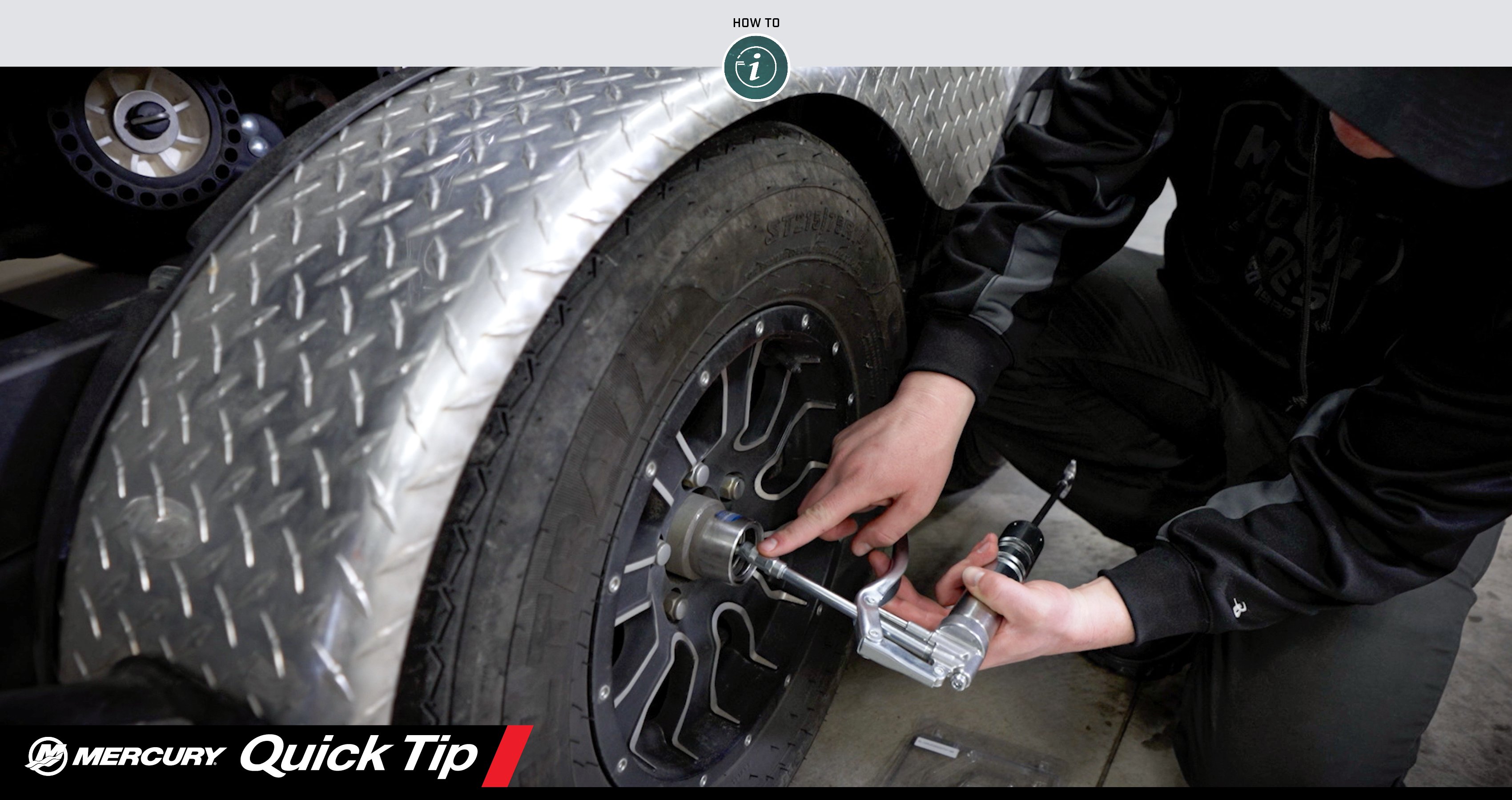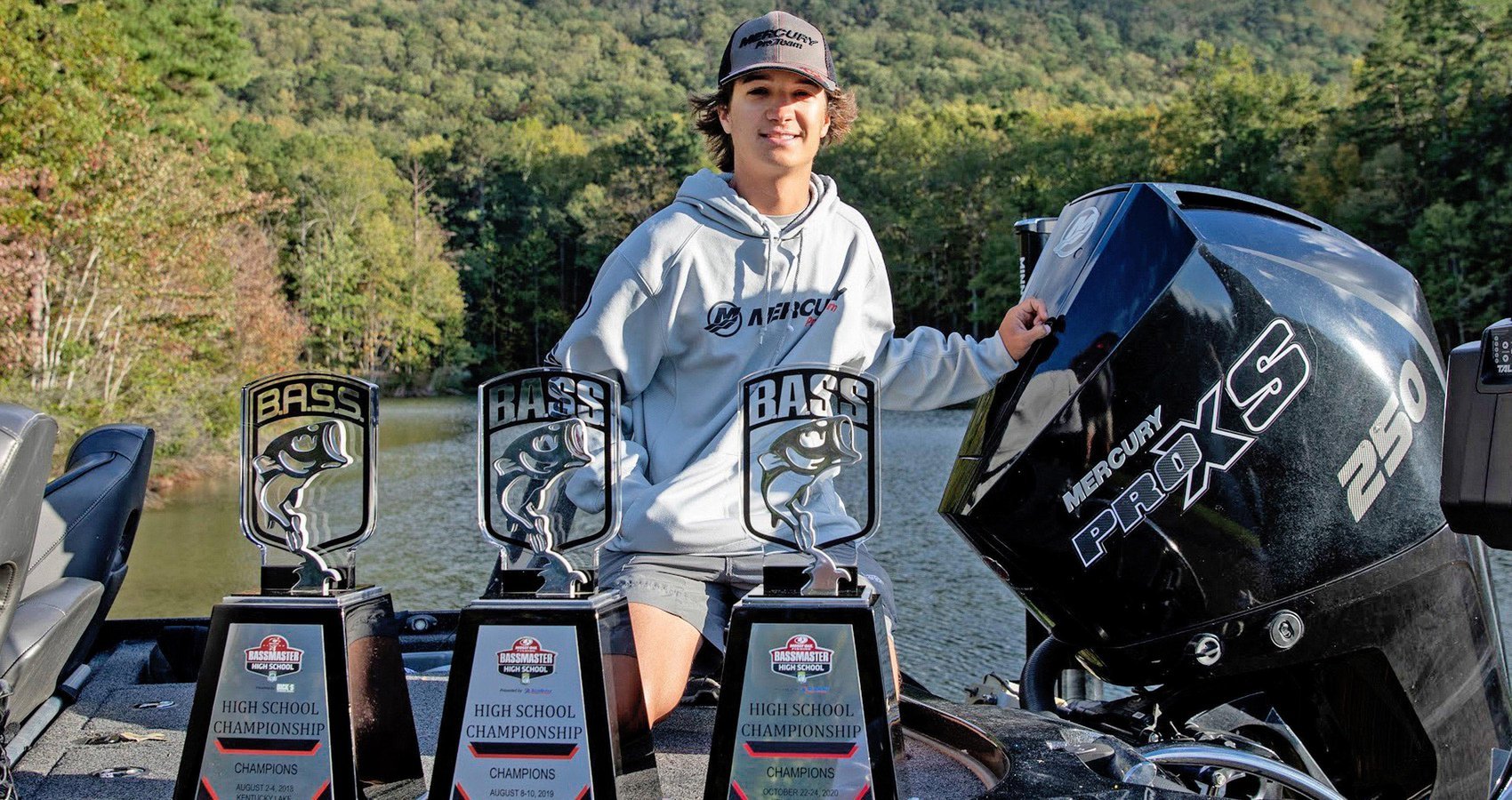One of the best ways to make sure that children stay entertained while on board your boat is to teach them how to drive the boat. Not only will they be more engaged with the boat and the natural setting around it, but also they will learn a skill that will serve them well for the rest of their lives.
“I think a lot of parents wait too long to start teaching their kids to drive their boat,” said Brian Latimer, a professional angler and member of the Mercury Pro Team from Belton, South Carolina. Brian also is host of the Waypoint TV series “Straight Up Fishing.”
Exactly at what age to begin giving your child experience at the helm depends on the child’s interest and attention span. Brian started putting his son, Brevyn, behind the wheel of his bass boat at age 6. First, however, Brian made sure they were in an area with little or no boat traffic, and he controlled the boat’s throttle while keeping his other hand on the steering wheel.
It’s important for the parent to maintain control of the boat while the child is learning, not just for safety reasons, but also because many states have regulations governing the minimum age at which a person may operate a motor vessel. Anyone born on or after January 1, 1988, typically also has to complete a boater education course approved by the National Association of State Boating Law Administrators (NASBLA) before he or she can drive a boat. Be sure to look up your state’s boating regulations and stay within the law.
Safety First
Before you begin teaching your kid to drive a boat, he or she must understand the rules of safe boating. That starts with wearing a life jacket on board the boat. Most states have laws stating the age below which a child must wear a life jacket. In states where no children’s life jacket law is in place, a U.S. Coast Guard interim rule requires children under 13 on moving boats to wear a U.S. Coast Guard-approved life jacket that fits. The best way to encourage your child to keep his or her life jacket on is to lead by example and wear one yourself.
Go over the boating Rules of the Road with your child, or better yet, go ahead and enroll him or her in that boating education course they will be required to pass before operating a vessel. The class will familiarize your child with the Rules of the Road, aids to navigation and other essential boating tools. If your child is not old enough to learn to drive a car, remember he or she may not even realize the importance of staying to the right and passing other boats port-side to port-side on a waterway.
Finally, take the child on board your boat, and point out all the safety gear.
A Feel for the Wheel
“Starting out, I had Brevyn in my lap so he could get the feel of the steering wheel,” Brian said.
While you, the parent, should keep a hand on the wheel at all times, letting the child steer will give him or her a sense of how quickly the boat will respond to their touch. Show how to pick a landmark on the horizon and steer straight toward it without overcorrecting.
Whether your boat has a foot throttle, like Brian Latimer’s bass boat, or a traditional throttle control arm at the helm, you should operate the throttle for the child during the first few sessions. Show the child what idle feels like and, if you have a boat with a planing hull, slowly and smoothly advance the throttle to demonstrate the engine’s hole shot and the moment the boat settles onto plane.
One of the first and most important lessons to teach your child is that, “A boat doesn’t have brakes, so we have to account for that with our speed by throttling down,” Brian said.
Practice, Practice, Practice
Driving a boat correctly takes a lot of practice, but it’s a task many children will enjoy. Still, when your child begins to get tired and lose focus, it’s time to stop the boating lessons for the day.
“Kids are honest; they will tell you,” Brian said. If you pay attention to their mood, the next time you go boating, they will be eager to take the helm again.
Introducing a child to driving a boat not only can enhance his or her experience on board, it also makes sense from a safety standpoint, should something happen to you.
“Teaching a kid to drive a boat at an early age could save both your lives,” added Brian.




